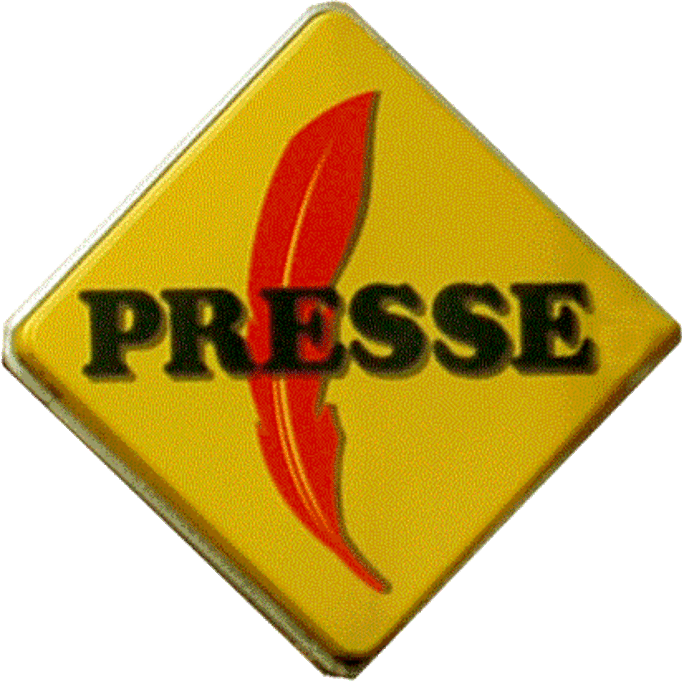The French press industry receives a staggering one billion euros annually in State aid, representing 10% of its yearly turnover. Now it's under pressure, not least from the government, to restructure or die before the tap runs dry. But, as David Medioni and Vincent Truffy report here, time is fast running out on a business still unable to define its future.
-------------------------
One billion euros in public aid for a sector that employs 50,000 people is a figure that would have most accountants choking and press managers elsewhere in Europe weeping. Neither Germany, nor Spain, nor the United Kingdom, nor Switzerland accord the slightest direct aid to their national press.
In France it piles up incoherently and includes: aid for postage; aid for transport; aid to retrain workers or to cover severance pay; an operating subsidy for French press agency Agence France-Press (AFP); help for international distribution and support fornewspapers with low advertising revenues.
At the end of 2008, French President Nicolas Sarkozy brought together government and the country's media professionals in a project aimed at establishing the state and future of the ailing print industry. Called ‘the States General of the press' (Etats généraux de la presse), it involved a series of round-table discussions, followed by detailed studies, sector by sector. Its brief was to carry out an autopsy of the problems and to suggest reforms where necessary (see more on this subject by clicking here).

On the issue of state aid, the‘States General' did nothing more than add another layer of 600 million euros over three years - and which does not include the modernization of printing plants. "The States General of the Written Press increased the amount of aid tothe press without thinking about how that aid should be managed," explained Laurent Mauriac, cofounder of French news website Rue89. "This was good for the press in the short-term because itprovided some room for manoeuvre. It's very bad in the long-term because it allows a system that doesn't function to persist and it doesn't need to ask itself if it will be renewed."
For Jean-Marie Charon, a media researcher at the French National Centre for Scientific Research (CNRS), "there has been a striking increase in aid to the press following the States General.This shows the failure of a process that has made the aid permanent without reforming it". According to consultant Aldo Cardoso's1 2010 report on Governance of Public Aid to the Press, nearly 80% of state aid is used to cover operating costs and 20% goes for investments. The few national newspapers that manage to break even do so only thanks to the injection of public funds.
For a newspaper such as the daily France-Soir, public aid represented over 60% of the turnover in 2008, a figure which has probably increased since. Devoid of global guidance or strategy, lacking sufficient expertise or of any evaluation worthy of the name (reviews by the Modernisation Fund Control Commission rely on satisfaction questionnaires), according to the Cardoso report, the French system of press subsidies seems at best a"fiasco" and often a "scandal".
-------------------------
1: Consultant Aldo Cardoso gave the ministers of communications and of the budget a report on the publicaid system on September 8th 2010.
Publishers 'must be made more responsible'
There was a note of reproach to French Prime Minister François Fillon traditional new year's wishes address to the press on Monday, January 10th 2011. "The soundness of media outlets is the best guarantee of freedom for journalists," he told the assembled industry representatives. "The state aid that is so precious to you will never create as much dynamism in the press as newspapers that sell well to a numerous and faithful readership, whether they prefer the paper or the internet version. So allow me, as I offer my best wishes, to wish first that you will gain readers, listeners, viewers and internet users," he added. In short: publishers, you will have to count on your own resources rather than on public funds.

He was soon answered in the form of a long press release from the French Union of the Regional Daily Press (Syndicat de la presse quotidienne régionale). Entitled ‘Home delivery of the daily press - it works!', the release begged the government to maintain aid for direct privately-managed delivery of newspapers to homes at its current level (it went from 8 million euros to 70 million over three years following the States General) beyond the deadline set for the end of 2011.
This is understandable since the regional daily press has benefited from 72% of the funds available by failing to pool its networks so that the national press won't benefit from them. "The aid provided by the States General mostly helped many papers to get through the 2009 crisis," argued François Morinière, managing director of sports daily L'Equipe (owned by the Amaury group). Culture minister Frédéric Mitterrand said the same thing on January 14th at the launch of the "consultative body" to reform press subsidies, when he deplored that "the new mechanisms and the massive budgetary increase allotted to the press since 2009 has not changed the basis on which the aid is organized".
Philippe Jannet is president of the Group of Publishers of Online Services (the Groupement des éditeurs des services en ligne) and CEO of Le Monde Interactif, a component of news website Le Monde.fr. "Obviously, more transparency is needed in the attribution of aid in order to make publishers more responsible," he agreed. "For example, the State has paid for about ten years to help workers to leave the sector [editor's note: printing, delivery] but publishers keep hiring more. If the aid is to be maintained, publishers must be accountable."
But L'Equipe's François Morninière disagrees. "About the idea of an administrative authority that would attribute aid as a function of strategy, I have reservations," he said, adding: "Rather than evaluating the strategy, this authority should instead set criteria for economic efficiency or for respecting budgets and goals presented by publishers from one year to the next."
'The aid-taking press has an obligation to show results'
Going against the grain of this bean-counter's vision, a French Socialist Party MP, Michel Françaix, co-president of the press study group in the National Assembly and author of a position paper on the targeting of aid to the press, considers that if the State helps the press financially, it's because it is politically and socially useful. "We must give priority to helping the citizen press," he explained, "that which helps the public to form an enlightened opinion. We no longer have the means to help a consumer press, for which the reader can pay the fair price."

According to him, "the aid is fair only if it is unequal". The aid - for example lower VAT - should be awarded only to general information and opinion newspapers and websites. This would free up funds to inject into the "citizen press". Françaix argued that "the missed opportunity of the States General must not result in the suppression of aid to the press". He warned: "Some may be dreaming of this at the Elysée, [editor's note: the French president's office], but that would be the worst thing to do. We should focus on the titles that are the most in need, those of the citizen press that guarantee plurality. Yet, these benefit from only 30% of public aid."
Economic efficiency is pitted against the demand for change. On the one hand, there is the idea that the press provides a public service and that the State must support it as long as it manages its funds virtuously. On the other hand is the conviction that the media environment has totally changed and that the subsidies must help the old press to accelerate change, rather than pouring funds into maintaining the conservatism of publishers and their inability to anticipate.
"The public authorities have totally respected their commitments," said Patrice Martin-Lalande, MP from the majority conservative-right UMP party and rapporteur for the media section of the budget. "In contrast, it's not clear that the professionals of the sector took advantage of this exceptional effort to implement fundamental reforms," he argued. "In view of the massive public support from which it benefits, the sector has an obligation to show results and it's first and foremost up to the professionals to take their responsibilities so that a long-term model emerges. Each day it becomes clearer that the move to digital is not only a necessity but an opportunity for the press," he added.
'Innovation is not confined to the internet'
To that end, the States General of the Written Press created a specific fund - the SPEL - open to all publishers accredited by the Joint Committee of Publications and Press Agencies (the Commission paritaire des publications et agences de presse). But it only manages 10% of the special aid: 60 million euros over three years for a total of 600 million euros. "The SPEL, created after the States General, modelled its operation on the Modernisation Fund which progressively became a kind of permanent subsidy," explained Maurice Botbol, chair of the Union of Independent Online Press (the Syndicat de la presse indépendante d'information en ligne, or SPIIL, of which Mediapart is a member). "And obviously some bad habits were transferred over. The SPIIL tries to limit them by demanding total transparency of the aid, that is the publication of the names of the beneficiaries, the amounts and the use of the public funds," he added.

But transparency is resisted by other professional unions who argue that it exposes trade secrets. A compromise was, however, reached allowing the divulging of a list of beneficiaries and the breakdown of expenditures. "The Minister of Culture is proposing to meld the Modernisation Fund and the SPEL," said Botbol who is also a participant in the consultation launched on January 14th by culture minister Frédéric Mitterrand. "It isn't absurd," added Botbol, "because the line between the supports is becoming more and more porous and the distinction necessary to one époque is less justified today. But it can't be done at the cost of a return to bad habits. Because only transparency can guarantee good governance of the aid. The fact that everybody knows how much the others are getting makes an equitable policy obligatory - otherwise suspicion will set in." (See on page 5 the aid accorded to Mediapart).
"There is both good and bad in the SPEL," argued Laurent Mauriac, cofounder of website Rue89. "A positive point: it only finances specific projects and does not provide publishers with an injection [of funds] to get to the end of the month. But if it has the expertise to evaluate the projects, it doesn't look at their nature and, often, it is financing an umpteenth iPhone application instead of favouring innovating projects. Even worse, by demanding that development be sub-contracted to outside businesses, it boosts the cost because the sub-contractors have integrated the fact that the expense is subsidized - and it bars the media publishers from keeping control of their technology. In short, it dissuades them from innovating."
But "innovation is not only technological" for Walter Bouvais, cofounder of website Terra Eco and SPIIL's representative to the SPEL: "The review XXI,1 for example, is innovative. State aid must be an encouragement to try new experiences and a way to buffer the risks in case of failure," he said. He proposes that the independent press "concentrate" itself by pooling resources. "Let's create a foundation endowed with secure capital, a sort of fraternal rather than an industrial grouping for the sites which have found a readership but whose economic model remains incomplete," he argued. "It's not a question of, as with ProPublica, a pure editorial project never ratified by the market, but to prolong the experience in order to achieve balance. This aid should, of course, be subjected to editorial conditions such as integrity, independence and ethical issues and economic conditions, to ensure that a sustainable economic model is found, as well as to social and environmental ones. The foundation would be a demanding shareholder but one that didn't judge the business only by its financial results."
-------------------------
1: Launched in 2008, XXI (for 21) is a successful niche quarterly, ad-free print magazine of essays, feature articles, photo-reportages, literary topics and drawings, sold through book stores and by subscription.
A SUMMARY OF AID GRANTED TO MEDIAPART
Two types of aid to the press are available: an interest-free loan payable in three years or a subsidy. Subsidies are accorded only once the money has already been spent while the loans are an advance on expenses.
Since aid to the press was made available to online publishers, Mediapart has made two requests for aid to the online press aid fund (SPEL).
When the following figures were prepared, in January 2011, Mediapart had received no subsidies and was accorded an advance, to be reimbursed after three years, of 124,320 euros.
In 2009, the company presented a spending commitment of 423,800 euros as follows:
- 299,480 euros of external development expenses (computer technology) and investments (equipment) of which the SPEL can cover up to 60% (a maximum of 179,688 euros).
- 124,320 euros of marketing expenses for which the SPEL accords only cash flow advances to be reimbursed at the end of three years.
For 2009, the company obtained an interest-free loan (an advance) of 124,320 euros and no subsidies. On December 31st, 2010, Mediapart had spent 211,871 euros (out of the 299,480 euros eligible for aid) and the company has requested a subsidy of 125,627 euros.
In 2010, Mediapart presented a spending commitment of 416,266 euros as follows:
- 301,546 euros of development and investment.
- 114,720 euros of marketing expenses.
Companies can request a first reimbursement only once half of the sums have been in fact spent, which is not the case (so zero euros for the time being). Marketing expenses being now reimbursed only at 70%, Mediapart will request a reimbursable advance of 80,304 euros.
-------------------------


